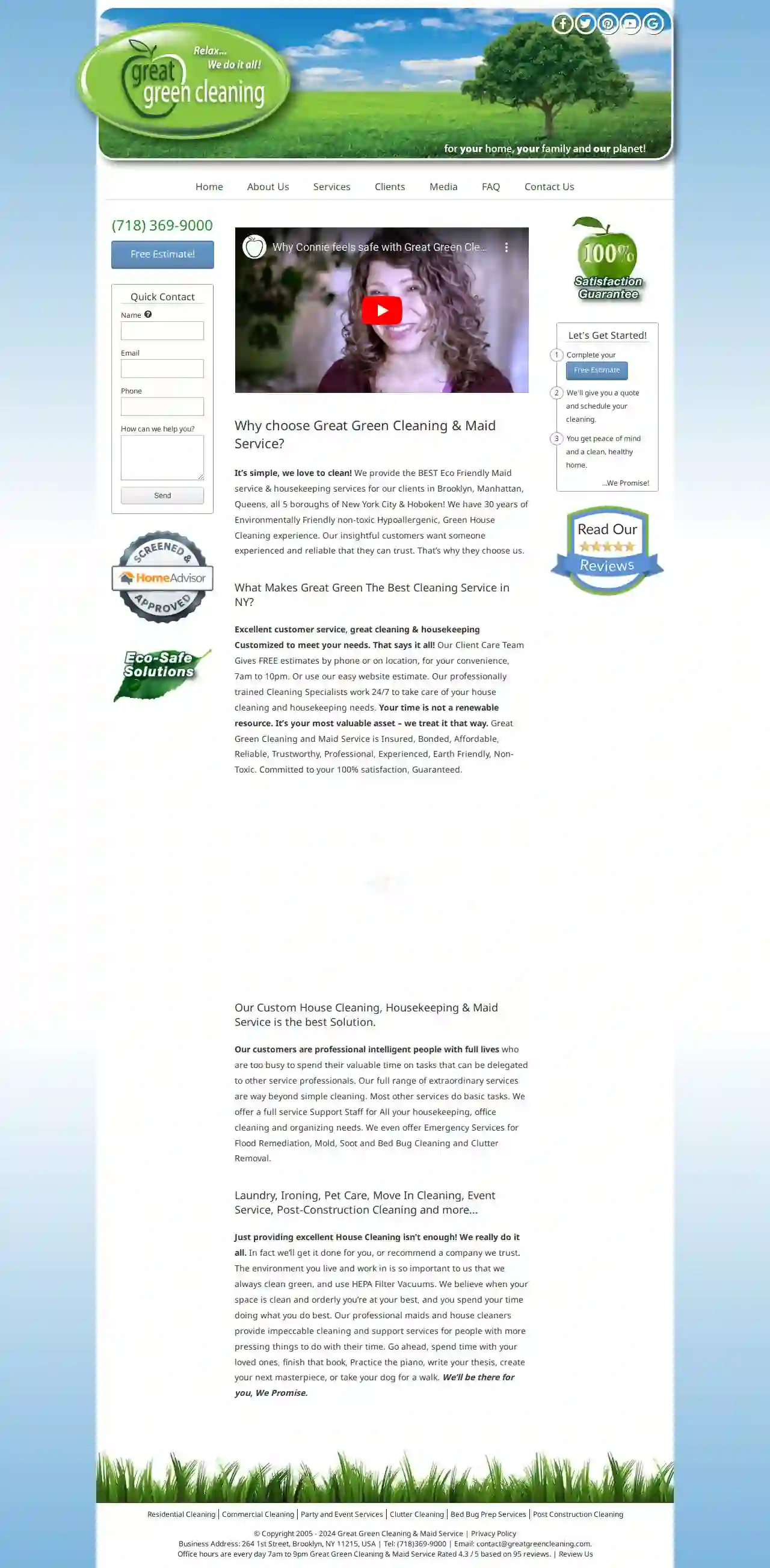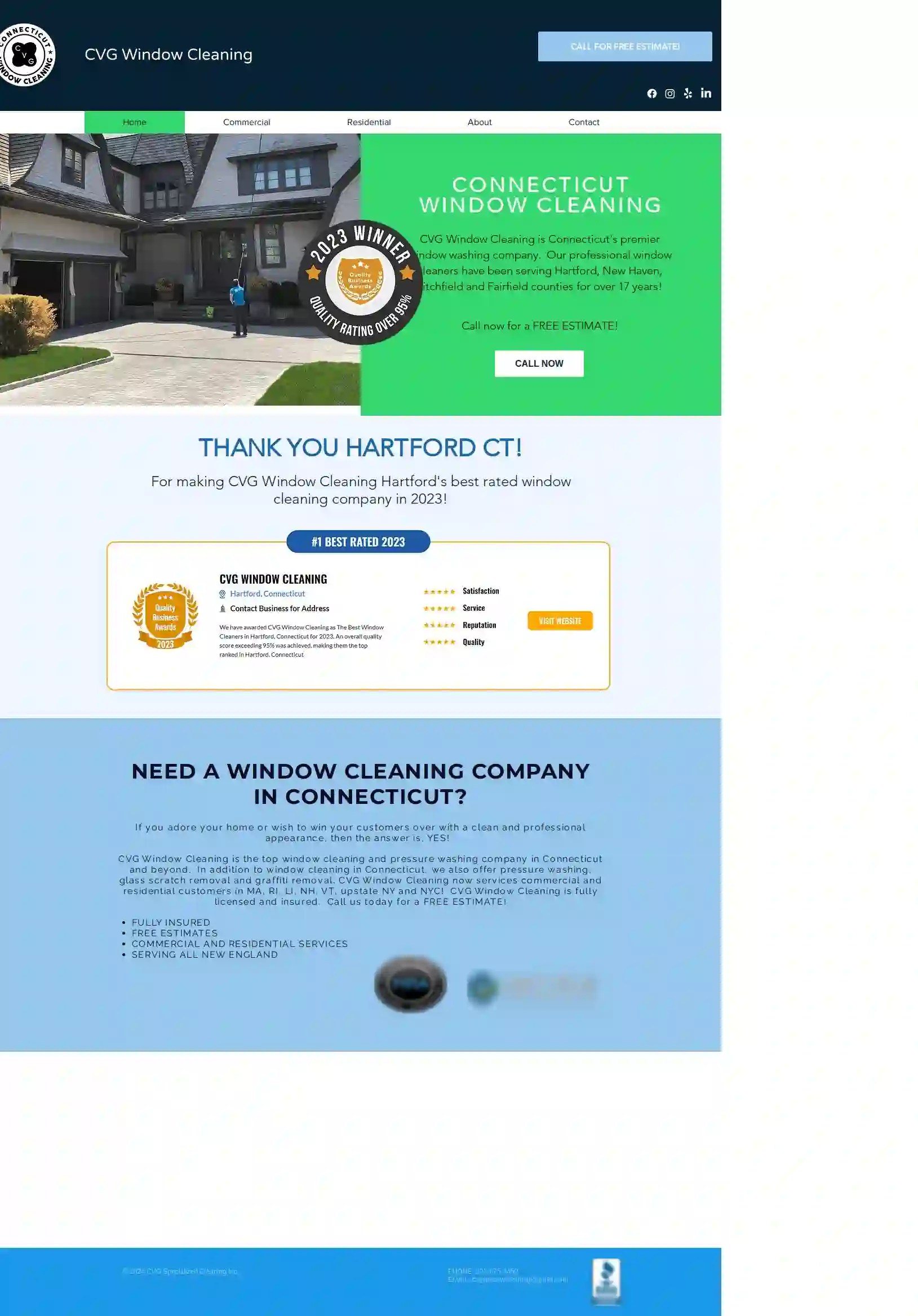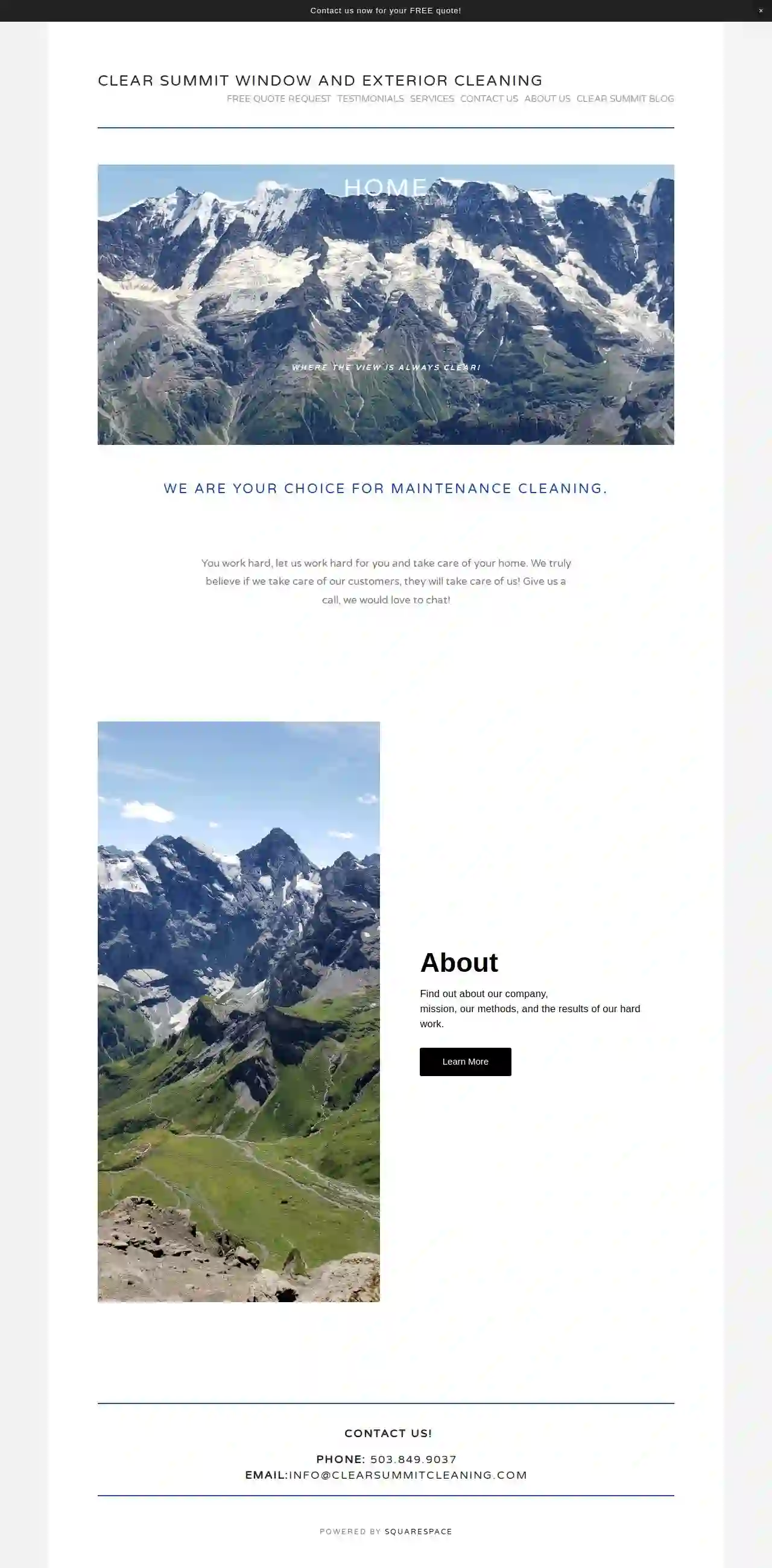Window Cleaning Salem
Top 10 Window Washing in Salem
Get multiple Window Cleaning quotes for your project today! Compare profiles, reviews, accreditations, portfolio, etc... and choose the best offer.

Great Green Cleaning & Maid Service
4.3101 reviewsBrooklyn, USGreat Green Cleaning & Maid Service is a family-owned and operated business serving the New York City area for over 30 years. We specialize in providing eco-friendly, non-toxic, hypoallergenic green house cleaning services for both residential and commercial clients. Our team of professionally trained cleaning specialists is committed to delivering exceptional customer service and exceeding your expectations. We understand that your time is valuable, so we offer flexible scheduling and convenient online booking. Our services include a wide range of options, from regular house cleaning and spring cleaning to move-in/out cleaning, post-construction cleaning, organizing, laundry and ironing services, errands and dry cleaning services, party and event services, handyman services, pet care, gardening, and emergency cleaning services. We are fully insured, bonded, and affordable, and we guarantee 100% customer satisfaction.
- Services
- Why Us?
- Testimonials
- Gallery
Get Quote
The Maids in Boston
4.8155 reviewsJamaica Plain, Massachusetts, 179 Boylston St., Boston, 02130, USGet Personalized Cleaning Services Without The Hassle – Exclusive Partner of Mr. Clean. The Maids is a trusted cleaning service provider that offers customized cleaning plans to fit your budget and lifestyle. With over 200 locations across the US and Canada, we have a team of trusted cleaning professionals near you. Our 22-Step Cleaning Process ensures a spotless home every time. Choose from our three cleaning plans: Ultimate Healthy Home, Essential 5, and Core 3. Get a quote today and experience the Maids' exceptional cleaning services.
- Services
- Why Us?
- Testimonials
- Gallery
Get Quote
All Cleaning New York , Deep Cleaning , Post Construction Cleaning
Brooklyn, USWe are a professional cleaning company with over 10 years experience providing exceptional janitorial and housekeeping services to residents in New York City. At All Cleaning NYC We are licensed, insured and united. Our uniformed personnel are fully trained to the highest standards, including the Occupational Safety and Health Administration (OSHA). Our clients were so impressed that we secured commercial contracts for some local companies. As our reputation has grown, so has the demand for our services. Don't settle for less when you can rely on top-notch cleaning services backed by more than 10 years of professional experience. We are environmentally friendly, using our own organic, biodegradable products.
- Services
- Why Us?
- Gallery
Get Quote
Bungalow Cleaning Service
55 reviewsinsert address line 1, insert address line 2, insert street address, Brooklyn, 11238, USBungalow Cleaning Services is an Eco-friendly residential cleaning company that offers a classic professional home service catering to the specific needs of the New York City customer. With clients in Manhattan, Brooklyn, and Queens, we understand that every home is unique and is treated as such. Our mission is to make a difference in a city that seems too busy to even notice the most extreme circumstances. We take pride in making sure that all customers are left greatly satisfied as we transform this NYC 'Concrete Jungle' from grey to green. With packages & services ranging from residential cleaning to property management, we take the time to make sure that the customer's needs are met with efficiency, professionalism, and care.
- Services
- Why Us?
- Accreditations
- Our Team
- Gallery
Get Quote
CVG Window Cleaning
4.823 reviewsHartford, USCVG Window Cleaning has built strong relationships with local and national businesses, including retail chains, property management companies, and construction firms. With a commitment to safety and meticulous attention to detail, CVG Window Cleaning has become Connecticut's top choice for high-quality and reliable window cleaning services. Sparkling clean windows can enhance the ambiance and appeal of your property or storefront.
- Services
- Why Us?
- Gallery
Get Quote
Maids of Hartford
511 reviewsHartford, USWelcome to Maids of Hartford – Your Trusted Partner in Creating Sparkling Homes! With over three years of dedicated service, we take pride in transforming houses into havens. As your premier residential cleaning service, our commitment to excellence shines through every sparkling surface. Explore our home page to discover the magic of a meticulously cleaned living space. From tailored cleaning solutions to a team of dedicated professionals, we're here to elevate your home experience. Because at Maids of Hartford, a clean home is the heart of a happy home.
- Services
- Why Us?
- Our Team
- Testimonials
- Gallery
Get Quote
Clear Summit Window and Exterior Cleaning
58 reviewsPortland, USWe are your choice for MAINTENANCE cleaning. You work hard, let us work hard for you and take care of your home. We truly believe if we take care of our customers, they will take care of us! Give us a call, we would love to chat! About Find out about our company,mission, our methods, and the results of our hard work.
- Services
- Why Us?
- Our Team
- Testimonials
- Gallery
Get Quote
South Shore Window Cleaning
58 reviewsQuincy, USElevate Your Home's Aesthetic with South Shore's Finest Window Cleaners 781-217-3121 South Shore Window CleaningA perfect space is always envisioned as a bright and comfortable space that promotes a happy, lively, and productive atmosphere. An integral component of every beautifully designed space are the windows, and that is why it is incredibly important to keep your windows crystal clear and in pristine condition. Clean windows also showcase the level of attention and care you provide for your property, and all events and activities within that space. At times it may seem challenging to be able to clean your windows, especially if you are a busy parent or a dedicated business owner, but that is where South Shore Window Cleaning comes in! We offer window cleaning and so much more at affordable prices to keep your property’s exterior looking superb.
- Services
- Why Us?
- Gallery
Get Quote
Window Genie of North Connecticut
4.798 reviews123 Main St, North Connecticut, USWindow Genie of North Connecticut is a professional window cleaning and pressure washing company that provides top-notch services to residential and commercial customers. With a team of experienced and trained technicians, we use the latest equipment and eco-friendly solutions to ensure a sparkling clean finish. Our services include window cleaning, pressure washing, solar panel cleaning, gutter cleaning, and more. We pride ourselves on our commitment to customer satisfaction and our ability to provide a hassle-free experience. Contact us today to schedule your appointment and experience the Window Genie difference!
- Services
- Why Us?
- Gallery
Get Quote
Big Apple Window Cleaning
5603 reviews420 Lexington ave, #2440, New York, 10170, USBig Apple Window Cleaning is a top-rated window cleaning company in New York City, providing honest and reliable window washing services that exceed expectations since 2008. We are a full-service window cleaning company dedicated to meeting all your needs for facade and window washing. Our team is committed to delivering efficient and prompt service for both commercial and private buildings. We understand that crystal-clear windows are essential for any commercial building, enhancing its appearance and saving you time and money in the long run. That's why we recommend regular window washing at least three times a year to prevent the need for costly repairs, maintenance, and glass replacement. Whether you need a regular window wash, an initial wash for heavily soiled windows, post-construction cleaning, window screen cleaning, facade cleaning, or glass restoration, Big Apple Window Cleaning has the expertise and equipment to get the job done right. We utilize various methods, including aerial lifts, BMU & Davits, WFP/Water Fed Pole, and professional rope access, to ensure safe and efficient cleaning for all types of buildings. Contact us today for a free estimate and experience the Big Apple Window Cleaning difference!
- Services
- Why Us?
- Accreditations
- Our Team
- Testimonials
- Gallery
Get Quote
Over 60,241+ Janitorial Services registered
Our cleaning pros operate in Salem & surroundings!
CleaningMatch has curated and vetted Top Cleaning Businesses near Salem. Find the most trustworthy pro today.
Frequently Asked Questions About Window Cleaning
- Visible Dirt and Grime: Obvious dirt, streaks, or fingerprints on your windows detract from their appearance and hinder natural light.
- Hard Water Stains: Stubborn hard water stains, often appearing as white or cloudy spots, can be difficult to remove with DIY methods.
- Difficulty Seeing Clearly: If dirt or grime obstructs your view, it's a sign that your windows need a thorough cleaning.
- Allergies: Dirty windows can harbor dust and allergens, triggering allergies or respiratory problems for sensitive individuals.
- Last Cleaning Was Over Six Months Ago: If it's been more than six months since your last professional cleaning, it's generally a good idea to schedule another one.
- Vinegar Solution: A mixture of equal parts white vinegar and water is a natural and effective window cleaner. Vinegar's acidity helps cut through grime and leaves a streak-free finish when dried properly.
- Water-Fed Pole Systems: These systems use purified water, eliminating the need for chemical cleaners. Purified water dries without leaving streaks or spots, making it an environmentally friendly option.
- Commercial Eco-Friendly Cleaners: Look for commercial window cleaners that are labeled as biodegradable, non-toxic, and free of harsh chemicals.
- Reusable Spray Bottles and Cloths: Use reusable spray bottles and microfiber cloths to reduce waste associated with disposable cleaning products.
- Abrasive Cleaners: Avoid using abrasive cleaners or scrubbers on glass, as they can scratch the surface.
- Acidic Solutions: Strong acidic solutions, such as undiluted vinegar or lemon juice, can etch the glass, causing permanent damage.
- High-Pressure Washing: While pressure washing can be effective for some exterior cleaning tasks, it can damage window seals and force water into the frame, causing leaks.
- Cleaning in Direct Sunlight: Cleaning windows in direct sunlight can cause the cleaning solution to dry too quickly, leaving streaks and potentially damaging the glass.
- Experience: 'How long have you been in the window cleaning business?'
- Licensing and Insurance: 'Are you licensed, insured, and bonded?'
- Cleaning Methods: 'What cleaning methods and solutions do you use? Do you use traditional methods or a water-fed pole system?'
- Safety Procedures: 'What safety precautions do you take, especially for high-rise window cleaning?'
- Guarantees: 'Do you offer a satisfaction guarantee?'
- References: 'Can you provide references from previous clients?'
What are some signs that my windows need professional cleaning?
Professional window cleaning can restore the clarity and shine of your windows, improve your view, create a healthier indoor environment, and enhance the overall appearance of your home or business.
Are there any eco-friendly window cleaning options?
Choosing eco-friendly window cleaning options minimizes your environmental impact while still achieving clean and sparkling windows.
Can window cleaning damage my windows?
Using appropriate cleaning methods, solutions, and precautions can prevent window damage during cleaning. If you're unsure about the best approach, consult a professional window cleaning service.
What should I ask a window cleaner before hiring them?
By asking these questions, you can assess their professionalism, experience, and commitment to safety and customer satisfaction.
What are some signs that my windows need professional cleaning?
- Visible Dirt and Grime: Obvious dirt, streaks, or fingerprints on your windows detract from their appearance and hinder natural light.
- Hard Water Stains: Stubborn hard water stains, often appearing as white or cloudy spots, can be difficult to remove with DIY methods.
- Difficulty Seeing Clearly: If dirt or grime obstructs your view, it's a sign that your windows need a thorough cleaning.
- Allergies: Dirty windows can harbor dust and allergens, triggering allergies or respiratory problems for sensitive individuals.
- Last Cleaning Was Over Six Months Ago: If it's been more than six months since your last professional cleaning, it's generally a good idea to schedule another one.
Professional window cleaning can restore the clarity and shine of your windows, improve your view, create a healthier indoor environment, and enhance the overall appearance of your home or business.
Are there any eco-friendly window cleaning options?
- Vinegar Solution: A mixture of equal parts white vinegar and water is a natural and effective window cleaner. Vinegar's acidity helps cut through grime and leaves a streak-free finish when dried properly.
- Water-Fed Pole Systems: These systems use purified water, eliminating the need for chemical cleaners. Purified water dries without leaving streaks or spots, making it an environmentally friendly option.
- Commercial Eco-Friendly Cleaners: Look for commercial window cleaners that are labeled as biodegradable, non-toxic, and free of harsh chemicals.
- Reusable Spray Bottles and Cloths: Use reusable spray bottles and microfiber cloths to reduce waste associated with disposable cleaning products.
Choosing eco-friendly window cleaning options minimizes your environmental impact while still achieving clean and sparkling windows.
Can window cleaning damage my windows?
- Abrasive Cleaners: Avoid using abrasive cleaners or scrubbers on glass, as they can scratch the surface.
- Acidic Solutions: Strong acidic solutions, such as undiluted vinegar or lemon juice, can etch the glass, causing permanent damage.
- High-Pressure Washing: While pressure washing can be effective for some exterior cleaning tasks, it can damage window seals and force water into the frame, causing leaks.
- Cleaning in Direct Sunlight: Cleaning windows in direct sunlight can cause the cleaning solution to dry too quickly, leaving streaks and potentially damaging the glass.
Using appropriate cleaning methods, solutions, and precautions can prevent window damage during cleaning. If you're unsure about the best approach, consult a professional window cleaning service.
What should I ask a window cleaner before hiring them?
- Experience: 'How long have you been in the window cleaning business?'
- Licensing and Insurance: 'Are you licensed, insured, and bonded?'
- Cleaning Methods: 'What cleaning methods and solutions do you use? Do you use traditional methods or a water-fed pole system?'
- Safety Procedures: 'What safety precautions do you take, especially for high-rise window cleaning?'
- Guarantees: 'Do you offer a satisfaction guarantee?'
- References: 'Can you provide references from previous clients?'
By asking these questions, you can assess their professionalism, experience, and commitment to safety and customer satisfaction.